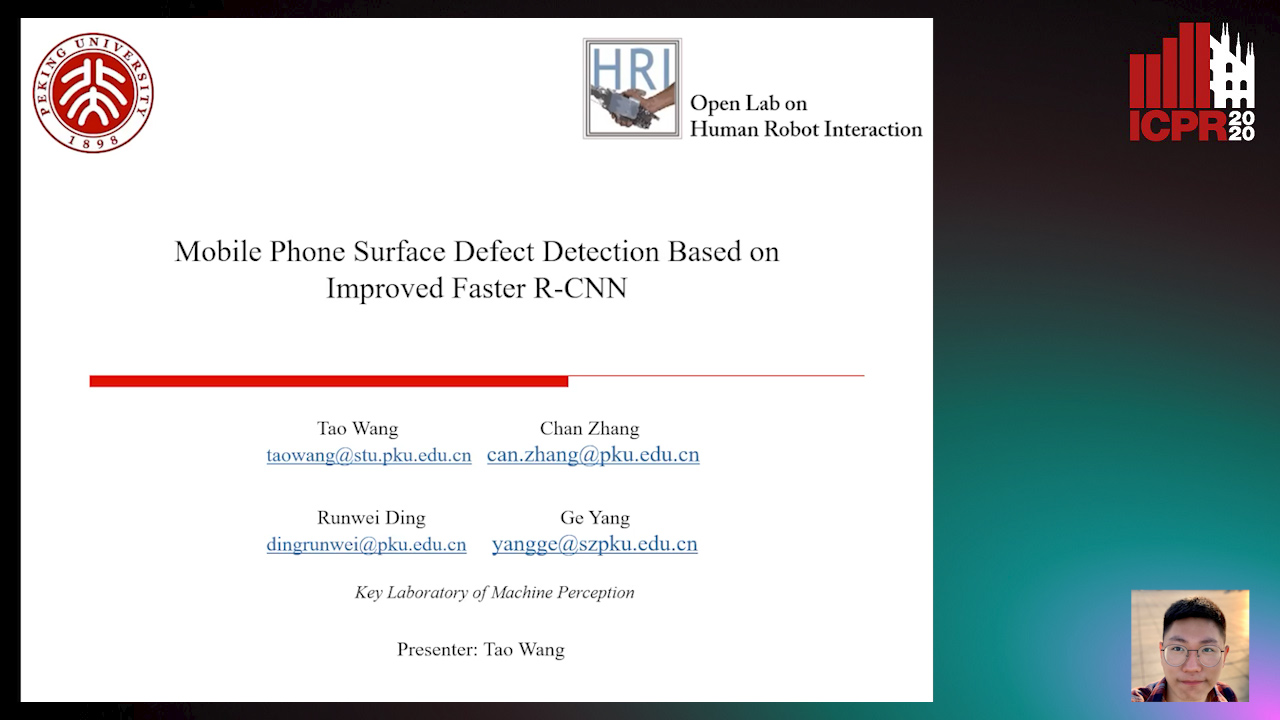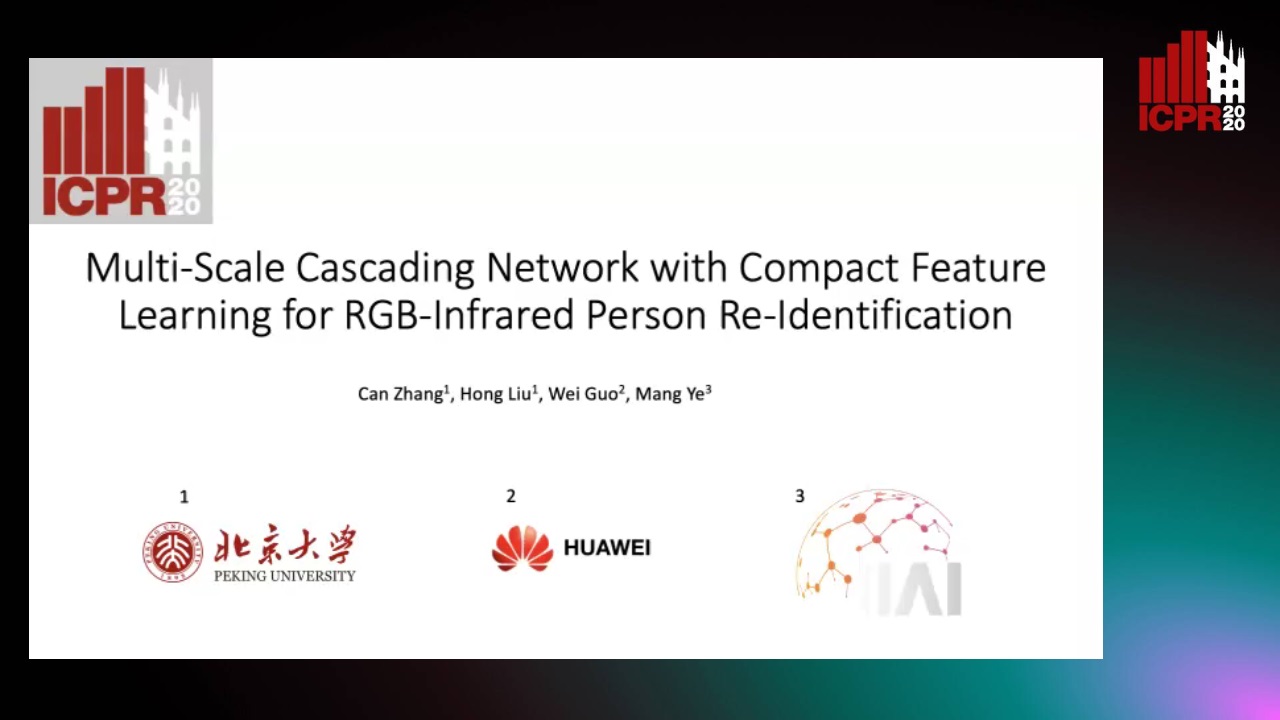Can Zhang
Papers from this author
Mobile Phone Surface Defect Detection Based on Improved Faster R-CNN
Tao Wang, Can Zhang, Runwei Ding, Ge Yang

Auto-TLDR; Faster R-CNN for Mobile Phone Surface Defect Detection
Abstract Slides Poster Similar
Multi-Scale Cascading Network with Compact Feature Learning for RGB-Infrared Person Re-Identification
Can Zhang, Hong Liu, Wei Guo, Mang Ye

Auto-TLDR; Multi-Scale Part-Aware Cascading for RGB-Infrared Person Re-identification
Abstract Slides Poster Similar